Features
This year, around 100,000 people in the UK will have a stroke. AI algorithms developed by a University of Oxford spinout company are ensuring that more stroke patients will receive better care and outcomes.
It’s no coincidence that the best-known acronym for spotting signs of a stroke urges FAST action. Every second counts, not least for the clinicians making crucial decisions about diagnosis and treatment.
Brainomix is a digital health company which spun out of the University’s preclinical stroke lab, part of the Nuffield Department of Clinical Neurosciences, in 2010. It was co-founded by Dr Michalis Papadakis, who now works full-time as the company's CEO.
In 2023 we were delighted to receive FDA approval to take our e-ASPECTS tool to the US, where more than 800,000 people suffer a stroke each year. This tool, part of the Brainomix 360 package of AI technologies, supports physicians who are making time-sensitive, critical decisions around transfer and treatment, strengthening networks and facilitating an improved stroke service.
Dr Michalis Papadakis, founder and CEO, Brainomix
The company has developed state-of-the-art AI algorithms to help doctors make quick, accurate decisions for patients. Its e-Stroke platform analyses images from simple CT scans, providing detailed real-time information – available to view remotely – on the extent and nature of damage to the brain.
The technology is effective: studies have shown that implementing e-Stroke reduces arrival-to-discharge times by more than one hour, as well as tripling the number of stroke patients going on to achieve functional independence.
The e-Stroke platform – the most comprehensive tool of its kind – has been adopted by more than 30 healthcare systems worldwide and has raised over £30m in public and private funding. A patient is scanned using e-Stroke every five minutes, with results available in just 60 seconds.
Brainomix has now developed similar AI-powered imaging platforms for lung disease and cancer. The company is regularly showcased by government as a leader in the health data revolution.
This year, around 100,000 people in the UK will have a stroke. That’s one every five minutes. Globally, the annual number of strokes is estimated to be upwards of 12 million, making it one of the world’s leading causes of death and disability. Brainomix is ensuring that an increasing number of those people will receive better care and better outcomes – a shining example of the potential for academic spinouts to translate innovative research into real-world impact that can benefit patients and healthcare providers.
Last October, twenty-two young people from across the UK began their studies at Oxford, becoming the first students on the University’s innovative new access programme, the Astrophoria Foundation Year.
Here, some of this year’s students reflect on their first term at Oxford, what they think of the city, and what they’re looking forward to over the next term.
Yihao, from Manchester, is studying Chemistry at Exeter College.
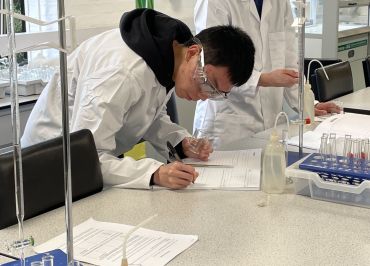 Chemistry student Yihao during his first term as an Astrophoria student at Oxford
Chemistry student Yihao during his first term as an Astrophoria student at Oxford“During my busiest week, I usually have three lectures, three classes, three tutorials, and a three-hour lab. Lectures last an hour each, while classes and tutorials extend to 1.5 hours. Additionally, there are sporadic Preparation for Undergraduate Study events in the evenings which sometimes feature talks that students can attend.
“Stepping into my first formal dinner event at Somerville College during Orientation week marked a truly unique and exhilarating experience, especially as everything was completely unfamiliar to me. The grandeur of the occasion, from the elegant setting to the formalities observed, added to the sense of novelty and excitement. Moreover, collaboration with fellow students has been an incredibly fulfilling aspect of my academic journey. Exchanging ideas, collectively navigating the challenges of academia, and supporting one another has enriched the overall learning environment.”
Bassam, originally from Iraq, is studying Law at Keble College.
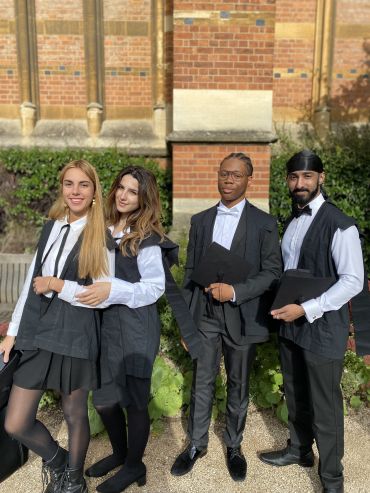 Bassam (on the right) is studying Law
Bassam (on the right) is studying Law“The first few weeks were spent getting to know the Astrophoria Foundation Year cohort and settling into Keble College. Fresher’s Fair was definitely a highlight as you get introduced to many clubs and societies. A lot of them hold taster sessions, which I recommend trying out. The majority of taster sessions will be at sports clubs like powerlifting and archery, and if you have the time, definitely try them out as you get to meet a lot of people from different colleges.
“The Astrophoria Foundation Year also attends a lot of Society & Culture events that familiarise you with Oxford such as Union debates and requiems. One event I attended this term was a Mozart Requiem at Merton College.”
Nayab, from Birmingham, is studying Chemistry at St Anne's College.
 Nayab is studying at St Anne's College
Nayab is studying at St Anne's College“Typically, we have a practical lab session once a week (sometimes not if we have a lot of tutorial questions to be done). We also have lectures which are followed by classes and tutorials. This all adds up to around 3 lectures, 3 classes and 3 tutorials in a week.
“There is a lot of work to be done but we can always email our tutors with questions, and they are happy to provide us with advice and guidance. This helps with getting through the work quickly. Despite the significant workload I have found that there is always time to get involved in other activities that are happening in my college or the wider university outside of the Chemistry course.”
The Astrophoria Foundation Year provides a fully funded one-year course for UK state school students who have experienced disadvantage or disruption during their education to help bridge the gap between A-levels and the challenging undergraduate degrees at Oxford.
Students can study one of four foundation courses; Humanities (Classics, History, English and Theology); Chemistry, Engineering and Materials Science; Philosophy, Politics and Economics (PPE); or Law, as well as Preparation for Undergraduate Study modules, and receive free tuition and accommodation, as well as a non-repayable bursary to cover their living costs.
Find out more about the Astrophoria Foundation Year and how to apply before the 31 January deadline here.
Frankco Harris is a first-year DPhil Criminology student at St Antony’s. He is funded by the Economic and Social Research Council (ESRC) Grand Union Doctoral Training Partnerships which offer training to talented graduates to equip them to become 21st-century leaders in social science research with social and economic impact. He is also a St Antony’s College Warden’s Scholar; and a Black Academic Futures Scholar – part of the University’s flagship graduate access scholarship programme that aims to address under-representation and help improve equality, diversity and inclusion in the graduate student body. Frankco’s doctoral thesis is on the socio-spatial dynamics of gang violence in Bermuda.
Tell us about your research and passion for your subject
‘My thesis will critically examine Bermuda’s distinctive setting by unravelling the complex interplay of geography, society, and violence. The research will explore the role of “islandness” in shaping and constraining gang dynamics, reflecting and contributing to the global understanding of criminology in isolated contexts.
‘Growing up in Bermuda, a small, tight-knit community, I was exposed to its nurturing aspects and complex social dynamics that can lead to criminogenic outcomes. This environment helped me understand the subtle but significant impact of social exclusion, violence, and economic disparities on both myself and those around me. My childhood was a journey through these multifaceted challenges, instilling in me a deep empathy for those caught in cycles of violence and poverty and sparking my interest in the broader social structures that drive these issues.’
 Frankco Harris
Frankco Harris
‘My journey has been anything but ordinary. I arrived in the UK in 2007 to study Law. But I struggled with mental health and addiction issues and withdrew after the first year. I then went in another direction entirely – music production and sound engineering and spent some years DJ-ing and producing music.
‘With concerted effort, I overcame addiction and regained my academic focus. I returned to law school at the University of East London, starting from scratch and working multiple part-time jobs to support myself. This was incredibly challenging but my hard work paid off and I graduated top of my class, receiving the Dean’s Award for Academic Achievement. I went onto complete an MSc in Criminal Justice Policy at the London School of Economics and there I won the Titmuss Best Dissertation Prize for Criminal Justice Policy.
'As a first-generation university student, a gay individual and a person of colour, I have first-hand experience of multiple barriers that can obstruct a person’s education and professional aspirations. These personal experiences have further fuelled my determination to succeed and have instilled in me a deep belief in the transformative power of education. ’
What attracted you to studying here?
'Firstly, Oxford's renowned reputation for academic excellence aligns with my aspirations for rigorous scholarly investigation. The University's commitment to pushing the boundaries of knowledge helps me thrive. Secondly, Oxford offers unparalleled access to many resources, including world-class libraries, leading experts, and a diverse academic community. These are essential for the depth and breadth of research I’m doing. Finally, the multidisciplinary environment at Oxford is invaluable. I can collaborate with experts and students in various fields and this enriches my understanding of the complex social issues I’m studying.
The solutions to the most pressing social challenges often lie at the intersection of different academic disciplines, and Oxford provides the ideal setting for such cross-pollination of ideas
Frankco Harris
What has your Oxford experience been like so far?
‘Oxford has had a profound impact on me since the moment I arrived. Interacting with fellow students and faculty members who are passionate about their fields of study is truly motivating. The intellectual energy and enthusiasm permeating campus are infectious.
‘Equally inspiring is the sense of history that envelops Oxford. Walking through the historic colleges, libraries, and streets, I am reminded of the countless generations of scholars who have contributed to the world's body of knowledge from this very place. The change of scenery and pace of life, especially coming from the bustling city of London, has also been a welcome shift. The serene beauty of Oxford creates an environment that fosters reflection and contemplation. It's a place where I have found solace amid the academic rigour.’
Studying for a DPhil is intensive work. What do you do in your spare time to relax?
‘I wholeheartedly embrace the Italian concept of Dolce far Niente – the sweetness of doing nothing. I put my phone on silent and indulge in doing nothing at all. I find comfort in moments of quiet solitude.
‘I also like to stay physically active and use the St Antony’s gym. I find working out relaxing, I go for long runs and I practice meditation. And music remains one of my passions, a constant source of joy in my life and a means of escaping the demands of academia. All these activities contribute to a balanced life.’
You have ambitious plans for the future that involve returning to Bermuda. Can you tell us about this?
‘I am firmly committed to returning to Bermuda, my homeland, and serving my community as a civil servant. Having spent more than 18 years in the UK, I’m eager to return and contribute to the improvement of Bermuda’s criminal justice system and related social issues. I also hope to establish my own charities, focusing on rehabilitiation and education to address critical needs in the community. I want to support individuals seeking to desist from criminal behaviour and provide educational opportunities to under-served populations.
‘I plan to continue my research and writing, concentrating on the emergent field of island criminology, rehabilitation and desistance, social policy and criminal justice issues. I would love to teach Criminology at Bermuda College.’
What would you say to prospective Oxford students who also come from disadvantaged or complex backgrounds?
‘Being here at Oxford represents much more than a personal achievement: it serves as opportunity to be a visible example to others who have faced similar adversity and come from challenging backgrounds. My success demonstrates that despite facing formidable obstacles, one can succeed and excel in academia and beyond. My presence at Oxford is a testament to the idea that barriers can be overcome and dreams can be realised through determination and resilience.’
Read a longer interview with Frankco here
As the Michaelmas term comes to a close, three first-year undergraduates - Lloyd, Eve, and Freya - share their thoughts on their academic year so far.
What were your first impressions when you arrived in Oxford?
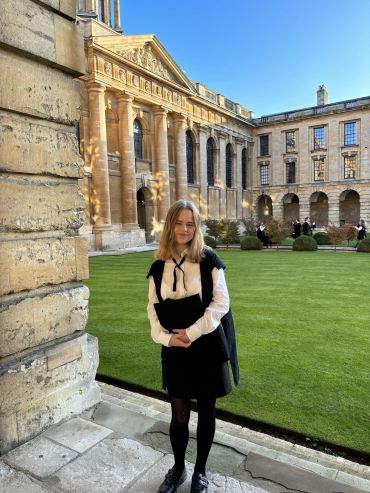 Freya at The Queen's College on matriculation day
Freya at The Queen's College on matriculation dayLloyd: My first impressions of Oxford were great, I met nice people and got used to the area quickly. The workload is a lot, but it is what I expected from one of the best universities in the world.
Eve: I think I initially gained my first impressions from exploring the city itself, walking around streets and colleges steeped in such history is quite intimidating at first! But having lived here now for 8 weeks and getting into my studies I have come to love the city so much and getting to know people from around all of the different colleges has got rid of any intimidatory feelings I might have felt!
Freya: The city is even more gorgeous than I expected, I felt like I was walking around a green screen for a good few days!
What’s it like living and studying at an Oxford college?
Lloyd: Exeter is very nice, all the people are friendly and it's very easy to meet new people.
Eve: Lady Margaret Hall (LMH) is such a lovely environment to be in, both to live and study. The grounds are so beautiful and spacious, it is lovely to take a quick study break and take a walk to admire the gardens which are always so pretty and peaceful.
Everyone is so friendly at LMH it has been lovely getting to know my peers and socialising, with bops always being great fun. Studying at LMH has similarly been a brilliant experience so far, with all of my tutors and academic staff within college being immensely supportive and the friendly culture plays into this greatly too with everyone creating a supportive environment that has made settling in very easy.
Freya: I’m studying at Queen’s and I really love it! It has the perfect combination of looking very much “like an Oxford college” but also being a really friendly and close-knit community. The Upper Library is absolutely gorgeous and the hall food is really good!
 Lloyd outside the Sheldonian, where new students take part in the matriculation ceremony
Lloyd outside the Sheldonian, where new students take part in the matriculation ceremonyHow are your studies going?
Lloyd: I am studying Maths and the course so far is not bad. There are ups and downs, some harder topics than others. The workload is a challenge but there is still time for yourself. Learning new things will always be enjoyable for me.
Eve: I am studying Music. The course so far has been fascinatingly varied so far. I have studied topics from ‘Music and Protest’ to ‘What is Music?’ and each has been captivating to explore and get stuck into. I have particularly enjoyed studying some of the topic modules, and getting to explore the history, politics and the people behind the music has been so interesting!
Freya: I’m studying Medicine and it’s going surprisingly well so far - the workload was really intense around the middle-end of term and it was quite tricky to balance everything but I’m enjoying what I’m learning so much!
Have you got involved in anything outside of your studies?
Lloyd: For me personally, it is hard to fit in multiple activities throughout my week, but I do try to join the ACS (African and Caribbean Society) activities when there is time.
Eve: All of the things I am involved in outside of my main course studies are all quite music-related! I play in OUPhil (Oxford Philharmonic Orchestra) which is a lovely way to spend an evening of my week . I also sing in the chapel choirs of LMH and Jesus College - having never sung in an evensong service before both choirs have been welcoming and great fun to participate in. Having done so many services I now know it inside out!
Freya: I’ve really enjoyed getting involved with OICCU (the University-wide Christian Union) and am especially looking forward to the carols at the Sheldonian!
What’s been the highlight of the term?
Lloyd: My highlight of the term was definitely freshers' week, it was the most fun and had no work to think about.
Eve: The highlight of my term was undoubtedly performing Mahler’s 2nd Symphony with OUPhil and OUChorus at the Sheldonian. It is such an awe-inspiringly historic venue and having the opportunity to perform such a staggering piece of music in such a space alongside friends was amazing and a firm memory I won't forget any time soon!
Freya: Matriculation! Dressing up in sub fusc & taking photos with my friends, followed by the ceremony in the Sheldonian and then punting was really fun and made me feel like I was “truly” at Oxford.
Can you sum up your Oxford experience so far in three words?
Lloyd: Challenging, different, enjoyable.
Eve: Inspiring, thought-provoking, enjoyable.
Freya: Hectic, memorable and exciting!
Using chemistry to help reach sustainability goals is becoming an increasingly attractive research area. From solving global plastic pollution to improving the performance of rechargeable batteries found in electric cars, ‘green chemistry’ is a truly promising topic.
This article was researched and written by Isabel Williams, a former Masters Student at Oxford University’s Department of Biology.
Tackling the plastic pollution problem
 Synthetic plastics do not break down easily, causing them to be a major pollutant in natural environments. Image credit: mbala mbala merlin/ Getty Images.
Synthetic plastics do not break down easily, causing them to be a major pollutant in natural environments. Image credit: mbala mbala merlin/ Getty Images.But why is plastic such a problematic material? To find out why and to begin to tackle these problems, one needs to look at the material’s chemistry.
Plastics are made from synthetic ‘polymers’. Polymers are made from small molecular building blocks, called ‘monomers’, forming a large molecule resembling beads on a string. In plastics, these monomers are usually derived from non-renewable sources such as petrochemicals, making the production of plastic polymers highly unsustainable since they rely on fossil fuels. Additionally, due to the strong bonds between their monomers, synthetic polymers can persist and pollute the environment for hundreds of years before breaking down.
The solution: replacing plastics with ‘greener’ polymers
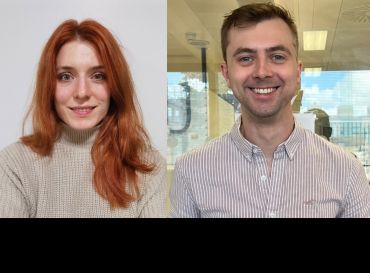 Dr Matilde Concilio (left) and Dr Gregory Sulley (right). Photo credit: Dr Gregory Sulley
Dr Matilde Concilio (left) and Dr Gregory Sulley (right). Photo credit: Dr Gregory SulleyResearchers at the University of Oxford’s Department of Chemistry are utilising a green chemistry approach to tackle plastic pollution. The aim? To phase out existing polymers and plastics and replace them with greener, more sustainable alternatives.
One avenue being explored is the production of polymers from renewable, bio-derived materials, rather than petrochemicals. Dr Matilde Concilio, a Postdoctoral Research Associate in Professor Charlotte Williams’ laboratory, works on making bio-derived polymers from commercially available resources. By using chemicals already commercialised, safety-checked, and approved, the hope is that any products or processes developed in this way will be swiftly accepted and adopted by industry. With bio-derived plastics accounting for only 1.5% of global plastic production in 2021, there is enormous potential for these materials to upscale and ultimately replace their less-sustainable competitors.
I’m convinced that polymers are the future, but only if you do it in a sustainable way.
Dr Matilde Concilio, Department of Chemistry
Dr Concilio’s bio-derived polymers are not only made from renewable sources but are also more sustainable from a processing standpoint. Usually, monomers need to be purified many times to achieve a high-quality final product. This is both energetically costly and expensive.
‘So, to make it more sustainable, what I’m trying to do is use monomers that don’t need to be purified’ Dr Concilio explains. This way, less energy, time, and money are spent on the polymerisation process.
Key to the development and uptake of these new polymers is ensuring that their material properties are as good as, if not better than, current petrochemically-derived options. This is essential if these new materials are to be adopted at scale within plastics industries.
Ultimately, what we want to do is phase out [the current plastics], so that our plastics, which we’re quite heavily reliant on as a society, come from renewable sources.
Dr Gregory Sulley, Department of Chemistry
‘One of the main targets for us is to try and property-match to the incumbent materials,’ says Dr Gregory Sulley, another Postdoctoral Research Associate in Professor Charlotte Williams’ laboratory. ‘Ultimately, what we want to do is phase out [the current plastics], so that our plastics, which we are quite heavily reliant on as a society, come from renewable sources.’
With continued work and collaboration, hopefully, sustainable plastics will go on to replace their more unsustainable alternatives, making plastic pollution a problem of the past. With any luck, the sight of plastic in our landfills, oceans, and beaches will soon be a distant memory.
Tailor-made polymers for energy storage solutions:
Similar green chemistry approaches are being applied to solve problems in energy storage. For instance, rechargeable batteries require their components to be in contact with one another to function. However, this is complicated by the fact that some of the components change volume as the battery is charged and discharged. With these batteries used in electric cars, solar panels, and wind turbines, overcoming this problem is a huge priority to help reach Net Zero emission targets.
So, how do you solve this problem? Enter polymers.
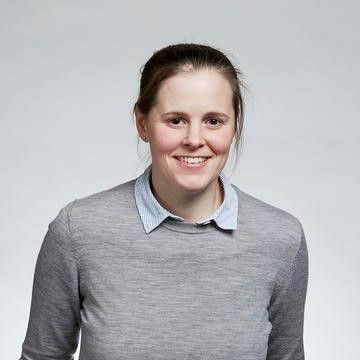 Dr Georgina Gregory. Photo credit: Royal Society.
Dr Georgina Gregory. Photo credit: Royal Society.
This application-driven design is integral to Dr Gregory’s work to improve the design of polymers so that they can overcome the current limitations of rechargeable batteries.
‘The polymer, in some respects, comes in as a way of holding it all together’ Dr Gregory explains. This means the polymer needs to be:
- Adhesive: to stick everything together in the battery;
- Slightly flexible: to accommodate the changes in volume;
- Ionically conductive: the polymer needs to allow ions (electrically-charged atoms) to flow through the battery.
With these three properties in mind, the researchers set out to precisely design a polymer for use in batteries. By specifically selecting building blocks possessing these properties, and utilising their ability to tightly control the polymerisation process, they were able to tailor the product to the problem.
A sustainable solution
The major global problem is replacing the plastics that we currently have. They are in absolutely everything, even things that you don’t even know they’re in.
Dr Georgina Gregory, Department of Chemistry
You would think with these many criteria, sustainability would fall to the back-burner. However, sustainability is still central to Dr Gregory’s tailor-made polymers.
‘I’m always trying to pick building blocks that are bio-derived and/or form degradable polymers so they lessen the environmental impact at end-of-life.’
In particular, Dr Gregory aims to use polymers that lend themselves to chemical recycling. Here, you ‘unzip’, or ‘depolymerise’ the polymer back to the monomers, or original building blocks, then use these monomers to make new polymers. Therefore, these tailor-made, hopefully, bio-derived polymers don’t contribute to the global issue of plastic pollution.
This ability to produce ‘tailored’ polymers is a special skill, one that is enabling University of Oxford chemists to tackle the crucial engineering challenges that are currently holding back the key technologies we need to achieve Net Zero.
Taking the hazards out of a hazardous production process
Sometimes, it isn’t so much the end product but the production process that creates environmental problems. Take fluorochemicals, for instance. This group of chemicals have a wide range of important applications – including polymers, agrochemicals, pharmaceuticals, and the lithium-ion batteries in smartphones and electric cars – and had a $21.4 billion global market in 2018. But currently, all fluorochemicals are generated from the toxic and corrosive gas hydrogen fluoride (HF) in a highly energy-intensive process. In addition, even with the best safety precautions, HF spills have occurred numerous times over the last decades, sometimes with fatal accidents and severe environmental impacts.
Thankfully, this may not be the case in the future, thanks to a new, safer approach developed by a team of University of Oxford chemists, alongside colleagues in Oxford spin-out FluoRok, University College London, and Colorado State University. The innovative method takes inspiration from the natural biomineralization process that forms teeth and bones.
Normally, HF itself is produced by reacting a crystalline mineral called fluorspar (CaF2) with sulfuric acid under harsh conditions, before it is used to make fluorochemicals. In the new method, fluorochemicals are made directly from CaF2, completely bypassing the production of HF: an achievement that chemists have sought for decades.
This advance builds on decades of research from the laboratory led by Professor Véronique Gouverneur FRS at the University of Oxford. ‘The direct use of CaF2 for fluorination is a holy grail in the field, and a solution to this problem has been sought for decades’ she says. ‘The transition to sustainable methods for the manufacturing of chemicals, with reduced or no detrimental impact on the environment, is today a high-priority goal that can be accelerated with ambitious programs and a total re-think of current manufacturing processes.’
By commercialising this technology, we aim to enable the development of safe, sustainable, and cost-effective synthesis of fluorocarbons worldwide. We hope that this study will encourage scientists around the world to provide disruptive solutions to challenging chemical problems, with the prospect of societal benefit.
Professor Véronique Gouverneur FRS, Department of Chemistry
In the novel method, solid-state CaF2 is activated by a biomineralization‑inspired process, which mimics the way that calcium phosphate minerals form biologically in teeth and bones. Professor Véronique’s team ground CaF2 with powdered potassium phosphate salt in a ball-mill machine for several hours, using a mechanochemical process that has evolved from the traditional way that we grind spices with a pestle and mortar.
The resulting powdered product, called FluoromixTM, allows over 50 different fluorochemicals to be made directly from CaF2, with yields of up to 98%.
Calum Patel, a DPhil student in the Department of Chemistry, and one of the researchers leading this work, says: ‘Mechanochemical activation of CaF2 with a phosphate salt was an exciting invention because this seemingly simple process represents a highly effective solution to a complex problem; however, big questions on how this reaction worked remained. Successful solutions to big challenges come from multidisciplinary approaches and expertise, I think the work really captures the importance of that.’
The process represents a paradigm shift for the manufacturing of fluorochemicals across the globe, and led to the creation of spin‑out company FluoRok in 2022. With the method being suitable for both academic and industrial applications, the research team hope it will ultimately lead to significant impacts in minimising carbon emissions (e.g. by shortening supply chains) and increasing the reliability of fluorochemical supply chains.
As Professor James Naismith, Head of the Mathematical, Physical and Life Sciences Division at Oxford University, says, these examples demonstrate how Oxford is leading the way to develop innovative solutions to our most pressing challenges. 'It is only through innovation that we can both improve the quality of life and stop damaging the planet' he says. 'Chemists at Oxford are leaders in green chemistry; the science behind sustainability. The range of work highlighted here includes materials from biology that could replace the fossil fuel-derived polymers modern life depends on, zero impact materials for lithium batteries, and replacing the use of waste-generating hazardous processes for chemicals which we can’t yet do without. The future is being made in Oxford by our talented researchers and students; this is a global effort with partnerships spanning the world.'
Green chemistry, also called sustainable chemistry, is defined as ‘the design of chemical products and processes that reduce or eliminate the use and generation of hazardous substances’ by the European Environmental Agency (EEA). Interest in this area has been increasing since the 1990s, with the US Environmental Protection Agency and the Royal Society of Chemistry’s journal, Green Chemistry, playing an important role.
- ‹ previous
- 4 of 248
- next ›
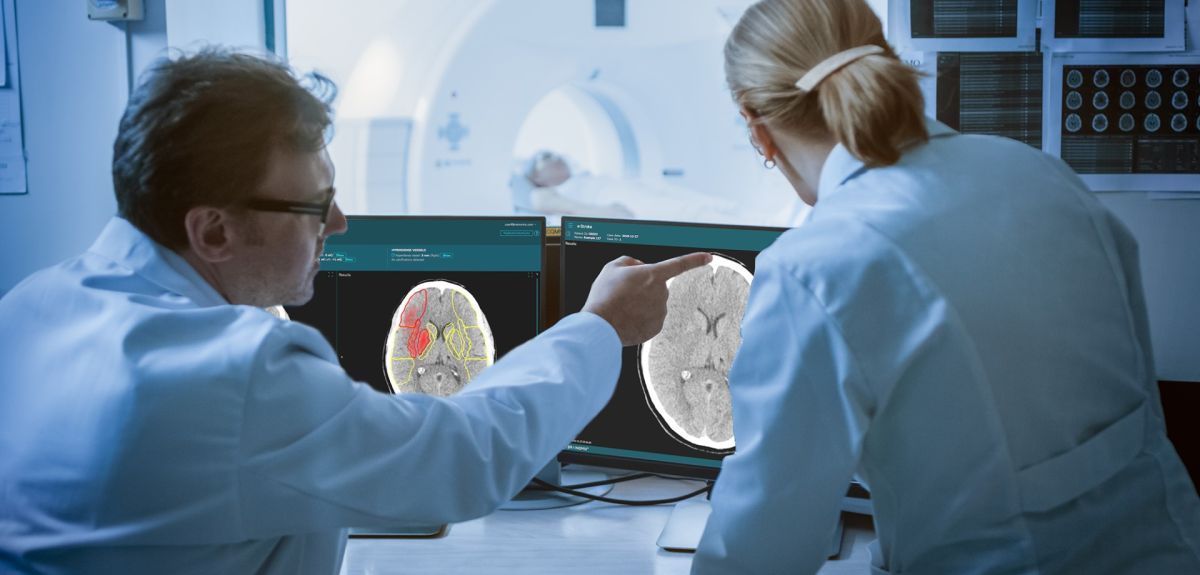
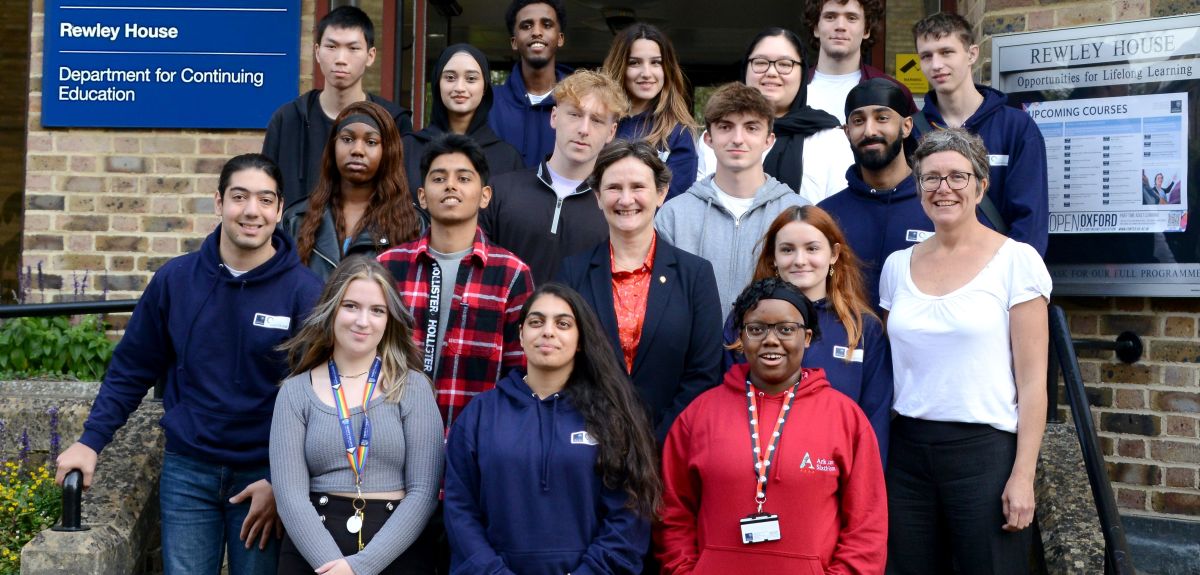

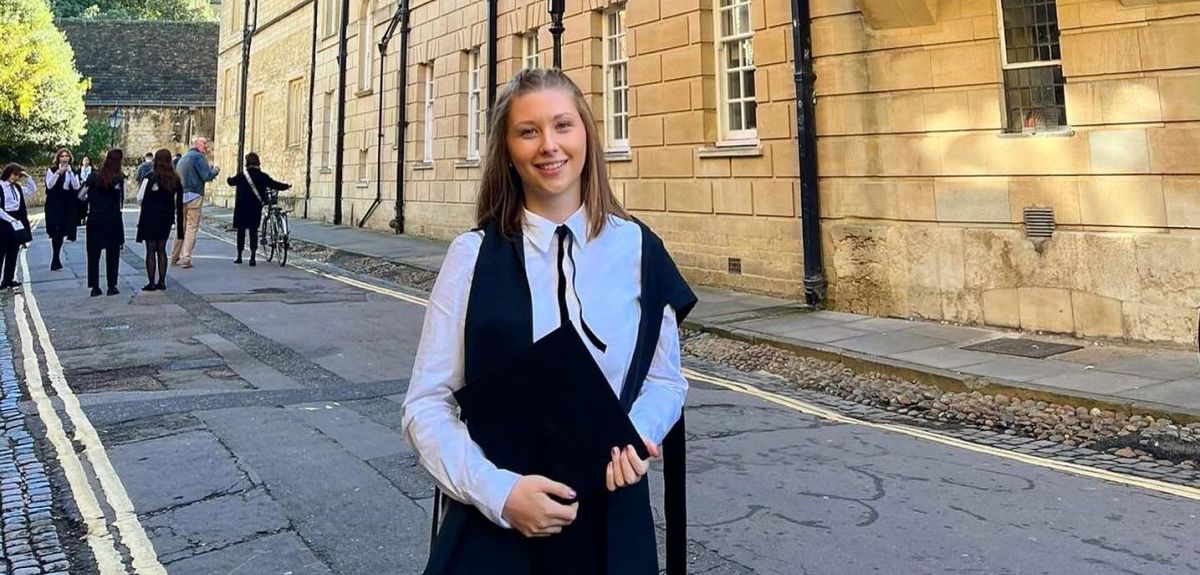

 Teaching the World’s Future Leaders
Teaching the World’s Future Leaders  A blueprint for sustainability: Building new circular battery economies to power the future
A blueprint for sustainability: Building new circular battery economies to power the future Oxford citizen science project helps improve detection of antibiotic resistance
Oxford citizen science project helps improve detection of antibiotic resistance The Oxford students at the forefront of the fight against microbial resistance
The Oxford students at the forefront of the fight against microbial resistance  The hidden cost of AI: In conversation with Professor Mark Graham
The hidden cost of AI: In conversation with Professor Mark Graham  Astrophoria Foundation Year: Dr Jo Begbie reflects on the programme’s first year
Astrophoria Foundation Year: Dr Jo Begbie reflects on the programme’s first year World Malaria Day 2024: an interview with Professor Philippe Guerin
World Malaria Day 2024: an interview with Professor Philippe Guerin From health policies to clinical practice, research on mental and brain health influences many areas of public life
From health policies to clinical practice, research on mental and brain health influences many areas of public life From research to action: How the Young Lives project is helping to protect girls from child marriage
From research to action: How the Young Lives project is helping to protect girls from child marriage